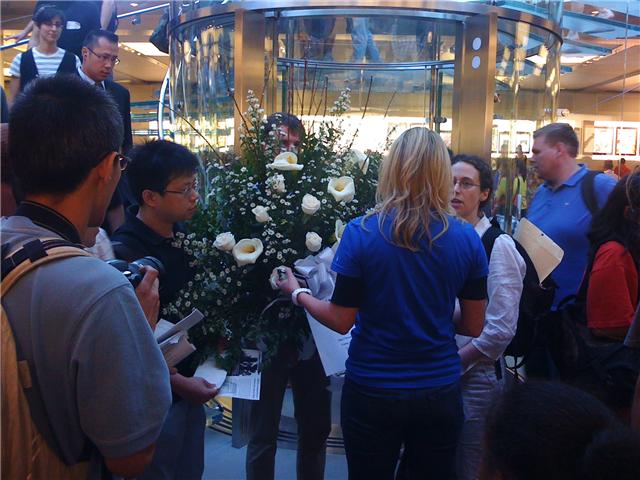| | |
|
IPhoneBoycottJune 11 - 06 Jul 2010 - Main.WenweiLai
|
| | Update!
 | | | Wenwei and Cecilia, thank you for your comments. Both of you talk about how non-wage factors such as geography and education make jobs likely to stay in China, and both of you clearly care about the cruel conditions in the factories. Your thoughtfulness is a great change from the Washington Consensus that ruled when I was in Students Against Sweatshops 10+ years ago. Few students wanted to devote nuanced thought to how the working lives of our fellow human beings in China and other countries might be improved. Instead we heard a lot about inevitable “sweatshop phases” of national “development.” Organizing for better conditions could only drive factories away and doom workers to lives of prostitution and picking through garbage dumps. Happily, in the real, non-theoretical world, workers often succeed when they pressure their employers. The Honda workers at the first Foshan plant are a good recent example. I particularly like their story because they won without organized support from consumers abroad. Instead, they leveraged their own skills, the labor shortage in South China, and Japan’s unpopularity in China. By adding their courage and solidarity to those factors, they were able to extract significant improvements from Honda.
-- AmandaBell - 04 Jul 2010 | |
>
> |
Amanda,
You seem to be pretty optimistic about the prospect of workers’ fighting for better conditions. Do you think the Honda factory in Foshan in just a special exception (China’s hatred for Japan plus a government relatively willing to push foreign “capitalists”), or there is something that can be applied to other places in the world?
NY Times today runs a follow-up to the story. It asserts that “China no longer wants to be the workshop of the world anymore.” The article concludes with a sentence “the value goes to where the knowledge is,” which seems to suggest that China should gradually get rid of the current labor-intensive businesses and echoes the point I made previously.
The article also provides a piece of information that surprises me: the labor involved in the assembly of an iphone accounts for only 7 percent of the total cost. I knew the number must be small, but it is way too small to be justified. (Ironically, when his employees are paid so little, the CEO of Foxconn is the richest person in Taiwan.) Therefore, China’s transformation is by no means the end of the story. The jobs will go to another country, and then another. Since it seems imminent that factories will start moving away from China, currently there are two things that we must pay attention to: firstly, how should the workers in China make a living then? Secondly, will the working conditions in other countries be as inhumane as ever?
There is some light but also a lot of uncertainty in both aspects. For China, better quality of workforce means better chance to have a success in higher-end businesses. However, it is still doubtful whether any kind of business can support as many people as Foxconn and other sweatshops do now. For other countries, it still remains to be seen whether the possible worker-initiated movements will reproduce the success that workers in China achieved in recent months. In my opinion, it is still very important to have other means to regulate businesses and force them to accept better terms. However, it will be even more difficult. In most third-world countries, governments tend to cooperate with foreign businesses in exploiting the local population, as long as they make enough contribution to the corrupt government officials. Blood diamonds are just one extreme example.
-- WenweiLai - 06 Jul 2010 | | |
-- AmandaBell - 01 Jun 2010 |
|
|
|
|
This site is powered by the TWiki collaboration platform.
All material on this collaboration platform is the property of the contributing authors.
All material marked as authored by Eben Moglen is available under the license terms CC-BY-SA version 4.
|
|
| | |